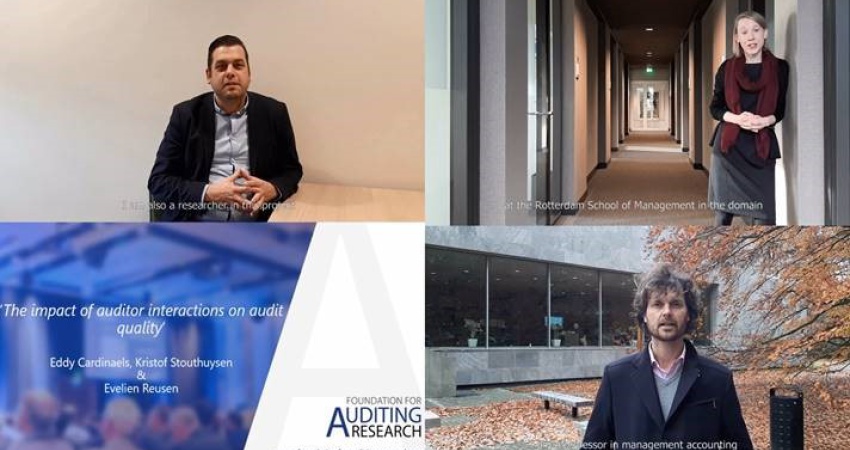This Masterclass has now ended.
For the video of the online event, please click here.
For the summary report please click here.
Click here for the event promo video.
Online Masterclass by Prof. dr. Eddy Cardinaels and Kristof Stouthuysen on “The impact of auditor interactions on audit quality” on 5 June 2020
The judgment and decision-making literature in auditing largely focuses on individual auditor judgments. However, auditors do not work in isolation. They interact with other auditors in audit engagements and with other participants in the financial reporting process. For this reason, scholars have called for more research on how the people, tasks, and environment that auditors interact with influence their performance and hence, the audit quality of their work.

-
Date:
5 June 2020 -
Location:
Online - details to follow
The event has ended
About the speakers

Prof. dr. Kristof Stouthuysen
Professor in Accounting and Control at Vlerick Business School and KU Leuven.

Prof. dr. Eddy Cardinaels
Eddy Cardinaels (1975) is full Professor of accounting at Tilburg University and part-time professor at KU Leuven. His work combines new insights from psychology and behavioral economics to study how different information presentation (ABC, BSC, summaries of earnings releases) can affect decision making of managers within companies. Other experimental work focuses on drivers of honest reporting and social motives in inter-firm negotiations. He also conducts archival work on corporate governance examining how social connections between board members affect financial reporting, how companies use their networks to engage in tax avoidance and factors that drive (excess) compensation.
